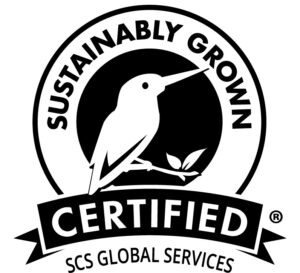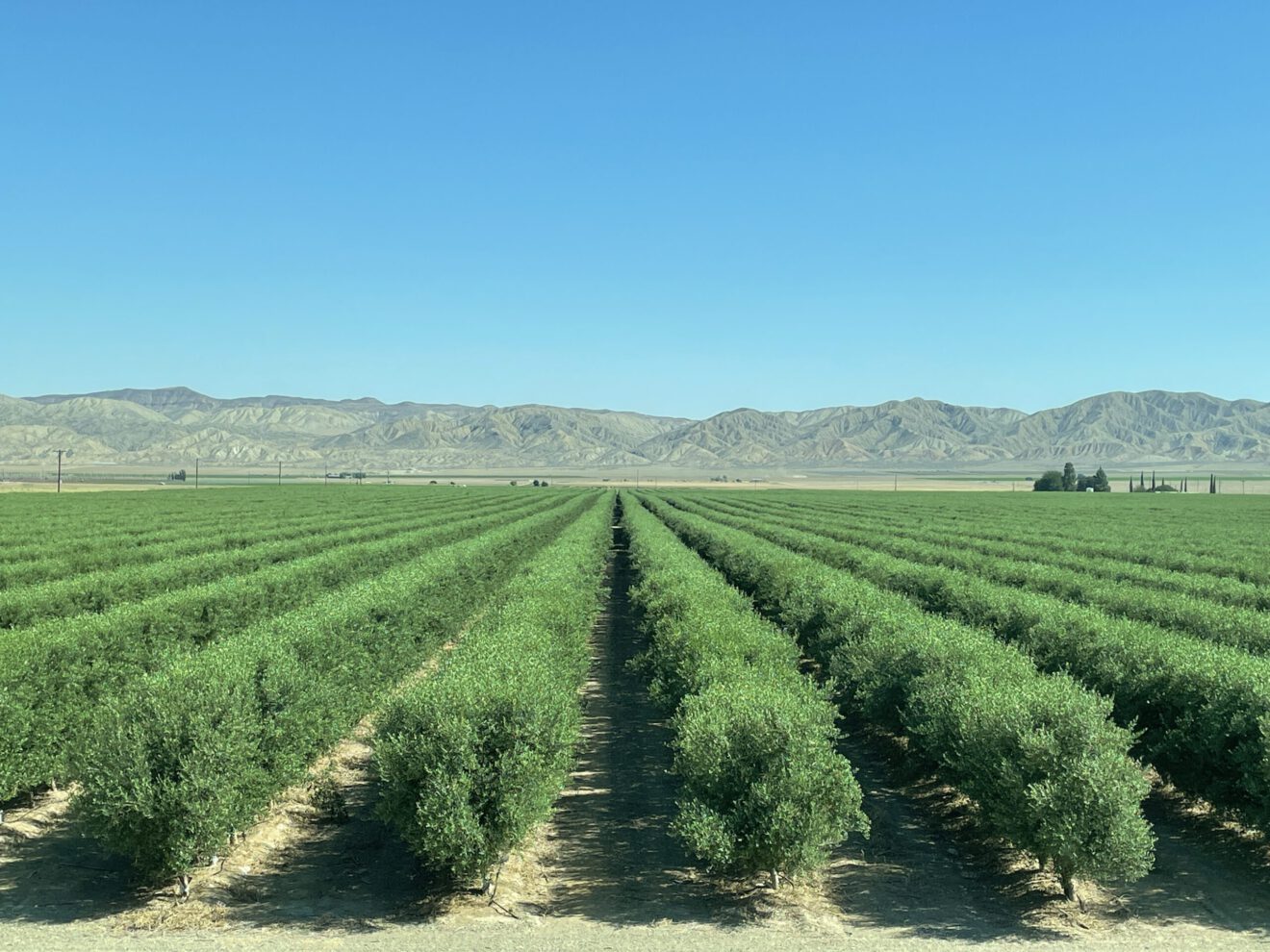This post is sponsored by Pompeian.
Pompeian, America’s best-selling olive oil brand, is leading by example when it comes to sustainability. The farmer owned company had a vision to elevate sustainability in olive oil production and felt it was time to hold itself and the industry to a higher standard. Pompeian chose to pursue certification with SCS Global Services, an international leader in third-party sustainability and food safety certification. Pompeian’s Sunrise Olive Ranch in Maricopa, Calif., received the certification on its first attempt, and Pompeian is proud to be the first olive oil producer in North America, and currently the only one in the world, to have a Sustainably Grown Certified olive farm and olive oil. Vice President of Quality, R&D and Sustainability Paula Lopes discusses what inspired Pompeian to pursue the certification, how the company is encouraging other olive oil producers and how sustainable practices can help lift the reputation of the entire olive oil industry.

Pompeian has a history of helping set accountability standards for the industry. What encouraged Pompeian to approach SCS Global Services about the Sustainably Grown Certification?
As the olive oil category leader, it’s been our mission since 1906 to take care of people, the planet and what’s on our consumers’ plates, truly leading by example when it comes to quality and responsibility. As a 100% farmer owned company, the transparency and integrity of our farming practices have always been our top priority and we recognized there was room for more accountability when it came to verifying sustainable olive tree farming and olive oil production. The highly regarded Sustainably Grown Certification program has been in place since the early 2000s and is recognized as a high standard of sustainability for many other agricultural crops, but surprisingly the North American olive oil industry was not one of them. In fact, until now no olive oil brand in North America has received this comprehensive third-party certification to ensure its olive trees or fruit were planted, grown or harvested in a sustainable manner. Our female-led sustainability team knew that it was time to hold ourselves and the industry to a higher standard, setting out to become the first in North America to receive this rigorous, one-of-a-kind certification.
Over the years, the olive oil category has had its fair share of accusations when it comes to quality and transparency, but Pompeian always remained above these allegations, meeting and exceeding the existing global standards. In 2012, we even took it a step further, urging the USDA to create a standard of quality for EVOO produced and sold in the US, which the regulator did and thus elevated the standards for EVOO, which Pompeian still holds to today. As one of the largest olive tree farmers in California, we truly believe it’s our responsibility to go beyond the oil and certify the source – the olive groves themselves. We searched for a credentialed organization to hold us to a higher standard and are now thrilled to be certified by SCS Global Services with a standard that embodies our goals in sustainable olive farming and olive oil production.
What benchmarks did Sunrise Olive Ranch need to hit to become the first Sustainably Grown Certified olive oil producer in North America?
The farm earned the certification on its first attempt, including surpassing business integrity and social standards, thanks in large part to the farm’s sustainable model since its opening in 2015. The certification provides a comprehensive framework and common set of requirements for agricultural production in terms of environmental stewardship, social and ethical responsibility, economic sustainability, and business integrity.
As a result, we can now say we are the first Sustainably Grown Certified olive oil producer in North America and currently the only one in the world, fulfilling our commitments to the United Nations’ Sustainable Development Goals. With a goal of democratizing healthy eating and sustainable options for all, we plan to offer this benefit to consumers with no price increase or impact on our already value price.
Additionally, our desire to push the industry to even higher standards motivated us to contribute comments during the standard revision process that resulted in SCS’ publication of Version 3.0 of the Certification Standard for Sustainably Grown Agricultural Crops, which incorporates the latest best practices in responsible agricultural production, a further win for the olive oil industry and sustainable agriculture.
 What learnings from the process can Pompeian share with other olive oil producers as they work toward earning the Sustainably Grown Certification?
What learnings from the process can Pompeian share with other olive oil producers as they work toward earning the Sustainably Grown Certification?
We believe wholeheartedly that this certification standard should be used across the olive oil industry, and we are eager to work closely with other olive oil producers to bring a new level of responsibility and accountability to our category. We are directly communicating with leading US olive oil producers – beginning with those with access to their own farms – to outline the steps, challenges and rewards we’ve experienced in the process.
We also have plans to actively scale sustainability certifications to all our farms worldwide, encouraging fellow producers to do the same. Our multi-year plan, which begins with all California products, paves the way for 50% of Pompeian farms worldwide to be Sustainably Grown Certified by 2026, aiming for 100% of our global EVOO suppliers certified by 2030.
How will the certification benefit olive oil producers and help lift the reputation of the entire US olive oil business?
We’re no strangers to the fact that the olive oil industry has been under scrutiny in the past. SCS has a strong legacy of bringing accountability and transparency to other agricultural industries, and now the olive oil industry is one of them. The Sustainably Grown Certification is a robust framework for sustainable agriculture and lends third-party credibility to our claims of environmental stewardship, social and economic responsibility, economic sustainability, and business integrity. The more other growers and producers pursue this certification, the more transparent and sustainable the olive oil industry will be overall. Additionally, the Sustainably Grown certification is recognized by key retailers including Walmart, ALDI, Lidl, Costco and more.
What other sustainability efforts is Pompeian working on to benefit the industry?
Pompeian also has plans to collaborate with the UC Davis Olive Center to further evaluate this certification for the previously non-certified olive tree farming industry in California. The Olive Center at UC Davis is the most prestigious agriculture center in the country for validating standards of quality and sustainability, and tracks olive farming and production processes in the US and globally.
An important resource in the development of our sustainable olive groves is a robust pollinator community of bees, birds and insects at our farms. We are now working with Pollinator Partnership to develop a certification program for pollinators and have plans to share the roadmap with competitors in the industry once it is completed, truly raising the bar on what it means to be sustainable and responsible in this industry.
Paula Lopes is the vice president of quality, R&D and sustainability at Pompeian with more than 25 years of experience leading food safety initiatives in the olive oil industry. She holds a bachelor’s degree in chemical engineering as well as a master’s degree in food safety, which she received from the University of Coimbra and Oporto Catolica University, respectively. Lopes is the North American Olive Oil Association Quality Control Committee Chair and is recognized for her participation in the development of the Olive Oil Standard of Identity, which will regulate the quality of all categories of olive oil in the US.
